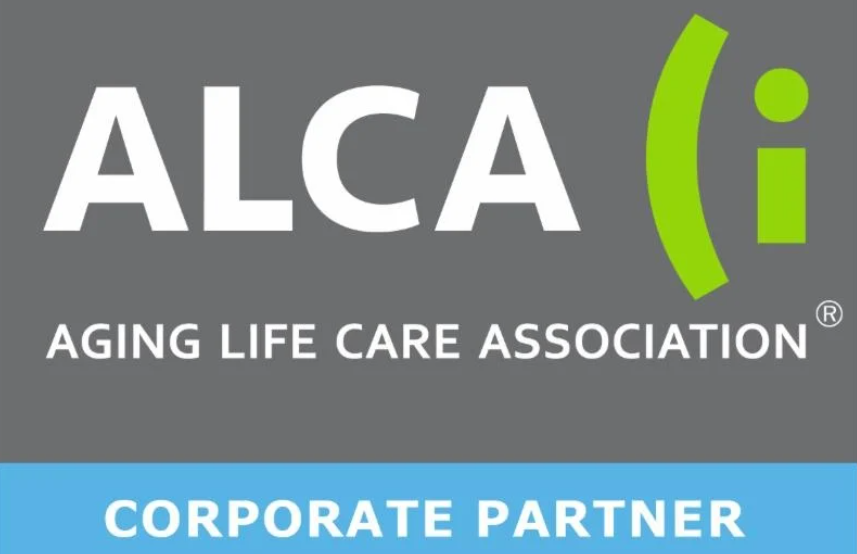Once a senior is unable to care for himself or herself, long-term care is required. It’s at this point that families may choose to care for the senior themselves, to hire an in-home caregiver or to look into nursing homes and assisted living facilities.
Understandably, the majority of seniors prefer to stay in their homes. This choice typically stems from their desire to remain independent and enjoy the freedom that they’re accustomed to. Remaining in the home is also helpful for those who suffer from degenerative diseases that affect the memory (eg Alzheimer’s) and for those who are losing their sight.
If the family would like to avoid placing their loved one in a nursing home or assisted living facility, the needs of the senior will dictate whether a Personal Care Aide (PCA) or a Home Healthcare Professional will provide the type of care he or she needs.
Home Care vs. Home Health Care: The Difference
While “home care” and “home health care” do have similarities, they are not interchangeable. Home health care service includes various forms of medical care that must be performed by a licensed healthcare professional. Home care services can be performed by those who are not licensed medical professionals.
While the majority of Personal Care Aides do not hold a medical degree, many of these individuals choose to become certified. In addition, some home care companies require that their Personal Care Aides attain certification.
According to the Bureau of Labor and Statistics, PCAs who work for agencies funded by Medicaid or Medicare must meet specific training requirements and pass an evaluation or state certification test.
Since providing home care services does not require a medical degree, many families start off by caring for their loved ones themselves. But, most people find it to be a daunting task and eventually decide to hire a Personal Care Aide from a home care service provider.
Below is a side-by-side comparison of home care and home health care services:

- HIPAA
- Alzheimer’s and dementia care
- Universal precautions
- Infection control
- Tuberculosis prevention
- Osteoporosis care
- Nutrition and cooking
- Hospice – end of life care
- Caring for seniors with vision loss
- Caring for seniors with hearing loss
- Cooking and feeding
- Ensuring medications are taken on time
- Showering/Bathing
- Dressing
- Toileting (including issues related to incontinence)
- Light housework (i.e., dishes, laundry, etc.)
- Walking assistance to prevent falls
- Shopping
- Pet Care
The Benefits of Hiring a Personal Care Aide
When a non-medical home care professional is hired, he or she will perform a variety of tasks to assist the senior throughout the day.
A Personal Care Aide provides the senior with:
- Personalized care from an individual who, when permitted through written consent, can speak with physicians on behalf of the senior, help the senior make appointments and ensure that he/she gets to these appointments (eg hairdresser, physician, dentist) on time
- Assistance while walking to prevent falls
- Help when rising from a seated position or after lying down
- Light housekeeping: Assistance completing household tasks, such as dishes and laundry
- Encouragement to remain active (preventing the onset of depression due to limited social interaction)
- Help maintaining his/her personal hygiene by assisting with bathing, showering, grooming, dressing, toileting, incontinence care, brushing, flossing and exercising
- A companion to take with on outings to restaurants, museums, theaters, funerals, religious services and weddings
- Assistance taking medications to ensure they are taken at the proper times
- Help requesting medication refills via the pharmacy’s automatic telephone system
- Assistance with grocery shopping by finding the best deals, picking out healthy food items, carrying the groceries into the house and helping to put them away
- Stimulation through activity engagement to promote more lucid thought
- Ensuring the senior’s daily dietary needs are met and any prescribed meal plans are followed by preparing healthy meals and snacks
- Feeding assistance
- Assistance caring for the senior’s pets through walking, feeding, watering and changing litter boxes as well as by scheduling appointments for pet grooming, and visits to the Veterinarian
- Running important errands
- Helping a wheelchair bound senior move in and out of his/her wheelchair
Home care services are performed by a Personal Care Aide. With a PCA, the senior gets to remain independent in a familiar environment and the senior’s family knows that their loved one is receiving personalized care from a compassionate, dedicated individual.
The Difference Between a Home Healthcare Professional and a Personal Care Aide
A Personal Care Aide is an individual who is qualified to assist a senior during daily life but, on average, these aides do not have a medical license or degree. That said, the home care companies that these individuals work for typically provide them with training targeting specific issues related to the senior care community.
For example, PCAs may attend a training program designed to address Alzheimer’s. These programs usually address the signs and symptoms of Alzheimer’s as well as how to recognize the different stages of the disease.
A Home Healthcare Professional can perform many of the tasks of a Personal Care Aide, and more. A Home Healthcare Professional is usually a Registered Nurse (RN) who is qualified to work in a hospital setting. Seniors who are recovering from a debilitating medical condition or who have undergone some type of major surgery will benefit from having the assistance of a Home Healthcare Professional throughout their recovery.
Having a Registered Nurse during this time is beneficial because RNs know the signs and symptoms that indicate illness or infection. An RN can also determine if the senior is having a reaction to a new treatment or medication. Their medical knowledge and work experience also helps them recognize other abnormal characteristics that may require further investigation or emergency treatment.
An RN has the ability to:
- Administer medications via an IV or through an injection
- Order certain laboratory tests and physical therapies
- Obtain blood samples via venipuncture
- Make dietary recommendations
Annual Costs for Home Care in Massachusetts
Massachusetts ranks as one of the more expensive states for in-home senior care with hourly wages ranging from $28 to $35.
When you choose North River Home Care, you get what you pay for. By adhering to high standards, the professionalism and quality of senior in-home care is guaranteed. The personal care aides with North River Home Care have compassionately served over 1,000 senior clients in Massachusetts.
Learn more about home care services with these related resources:
Our Service Area
North River Home Care serves families and their loved ones in the South Shore and MetroWest area. Below is a list of specific areas we serve.








